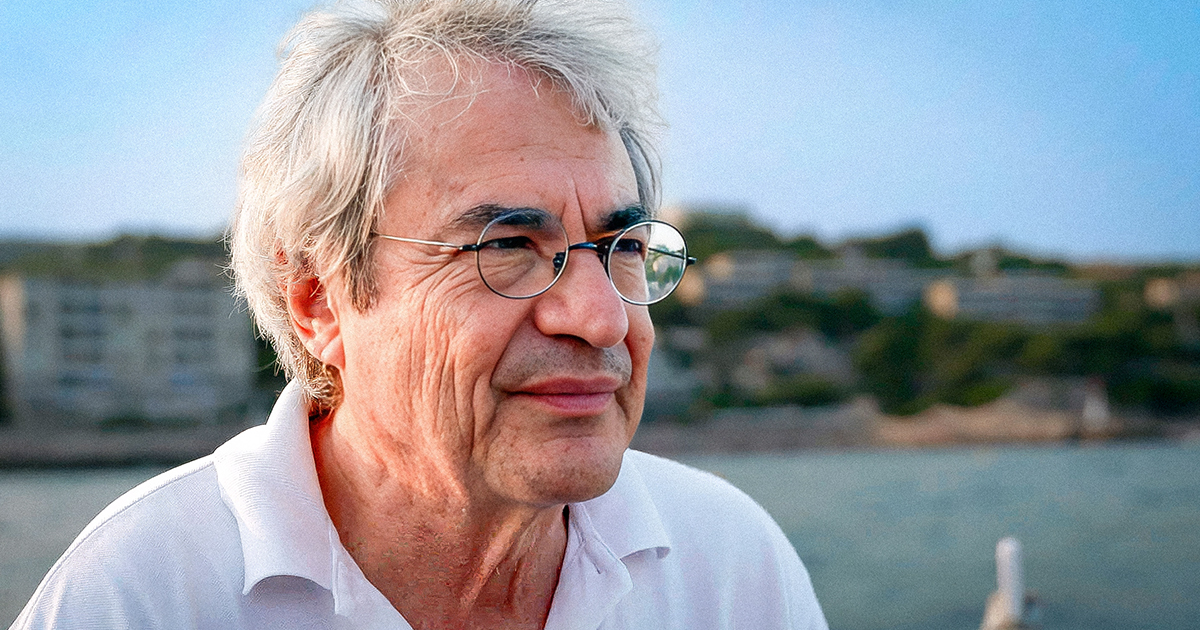
Carlo Rovelli’s Radical Perspective on Reality
Sitting outside a Catholic church on the French Riviera, Carlo Rovelli jutted his head forward and backward, imitating a pigeon trotting by. Pigeons bob their heads, he told me, not only to stabilize their vision but also to gauge distances to objects — compensating for their limited binocular vision. “It’s all perspectival,” he said.
A theoretical physicist affiliated with Aix-Marseille University, Rovelli studies how we perceive reality from our limited vantage point. His research is wide-ranging, running the gamut from quantum information to black holes, and often delves into the history and philosophy of science. In the late 1980s, he helped develop a theory called loop quantum gravity that aims to describe the quantum underpinnings of space and time. A decade later, he proposed a new “relational” interpretation of quantum mechanics, which goes so far as to suggest that there is no objective reality whatsoever, only perspectives on reality — be they a physicist’s or a pigeon’s.
More recently, he’s gained recognition as a best-selling author of popular science books, including Seven Brief Lessons on Physics, which has sold more than 2 million copies worldwide — placing him in a limelight he’s still adjusting to. “I’m very bad at being somewhat famous,” he said. “I’m always getting myself in trouble.” (During my visit, he was fending off criticism from the president of the Italian Physical Society, who accused him of defaming Enrico Fermi as a “bloodthirsty fascist/Nazi.”)
Rovelli’s own perspective on physics is heavily influenced by his rebellious, countercultural youth. A student protestor in an attempted political revolution in Bologna in 1977, Rovelli worked at a subversive left-wing radio station, drafted an illegal manifesto, and was later detained for refusing compulsory military service. Disillusioned by societal norms, “I had a sense that we were confused about how to think about reality around us,” he said. At 69, he remains politically engaged (and often enraged). “Part of me is still an old hippie.”
After the political unrest in Bologna petered out, Rovelli transferred his deep misgivings to the very fabric of reality. He used the same proclivity for challenging traditional ways of thinking to confront long-standing problems in the foundations of physics — not by rejecting established theories, but by embracing a new perspective on them. His approach centers around a radical openness to abandoning intuitions about how the world works.
First Appeared on
Source link






